Chip in to support PACG through Birdies for Charity!
through Friday, July 7th *
Once again, this year PACG is participating in the John Deere Birdies for Charity drive! The John Deere Classic runs from July 5th through 9th this year. Here is some information from the Birdies for Charity website about what this means for us:
When you chip in to help area charities, you could win! But your favorite charity will be the real winner. That’s because participating charities receive 100% of the donations pledged to them in this program, plus a bonus from the Birdies for Charity Bonus Fund which is a guaranteed 5% match.
John Deere Classic week is always exciting. Not just for the tournament, but also for what the tournament means for charities. Since 1971, the John Deere Classic has delivered over $159 million to regional charities, most of it through its innovative Birdies for Charity program. No other event on the PGA TOUR does it better -- and it's the generous and hardworking nature of this area that makes it happen!
Progressive Action Update readers, you can win a two-year lease on a new car by submitting your pledge donation form by June 16th!
And whatever you give to PACG through Birdies for Charity increases your donation by 5% through their generous matching offer.
Click this link or the button (above and below) to donate online to PACG! Our "Bird" is #2363
https://birdiesforcharity.com/donate?charity=2363
OR
Download your Birdies for Charity pledge form here. Fill it out (include PACG and Bird number 2363 at the top) and mail it to:
BIRDIES FOR CHARITY
15623 Coaltown Rd
East Moline, Illinois 61244
Make checks payable to Quad Cities Golf Classic Charitable Foundation.
* Important dates:
Friday, June 16th: Pledges and Guesses for the Grand Prize are due.
Friday, July 7th: Pledges and donations must be received.
July 5th through July 9th: John Deere Classic Tournament Week
Ann McCluskey
Treasurer, PACG


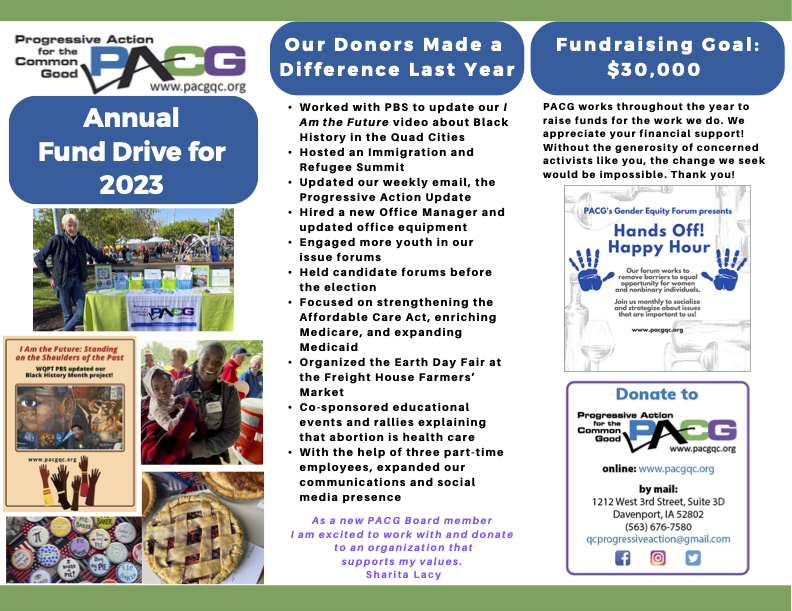
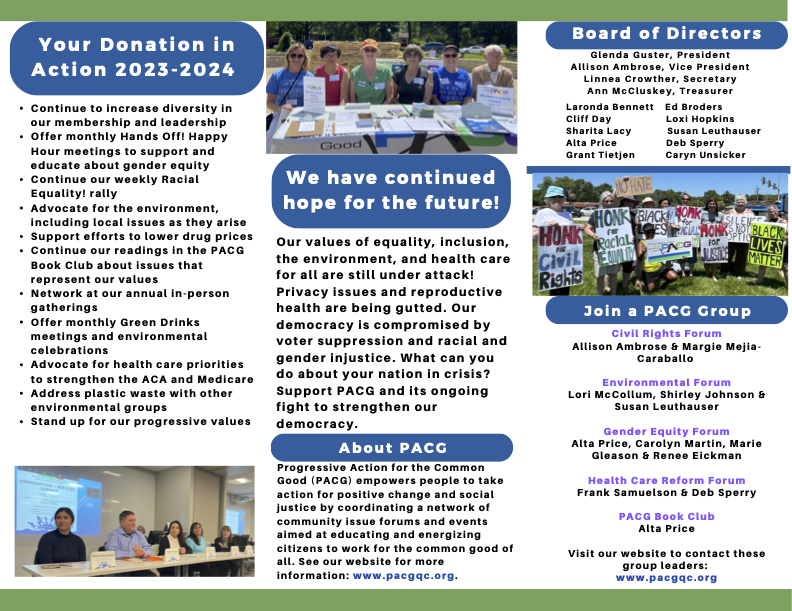

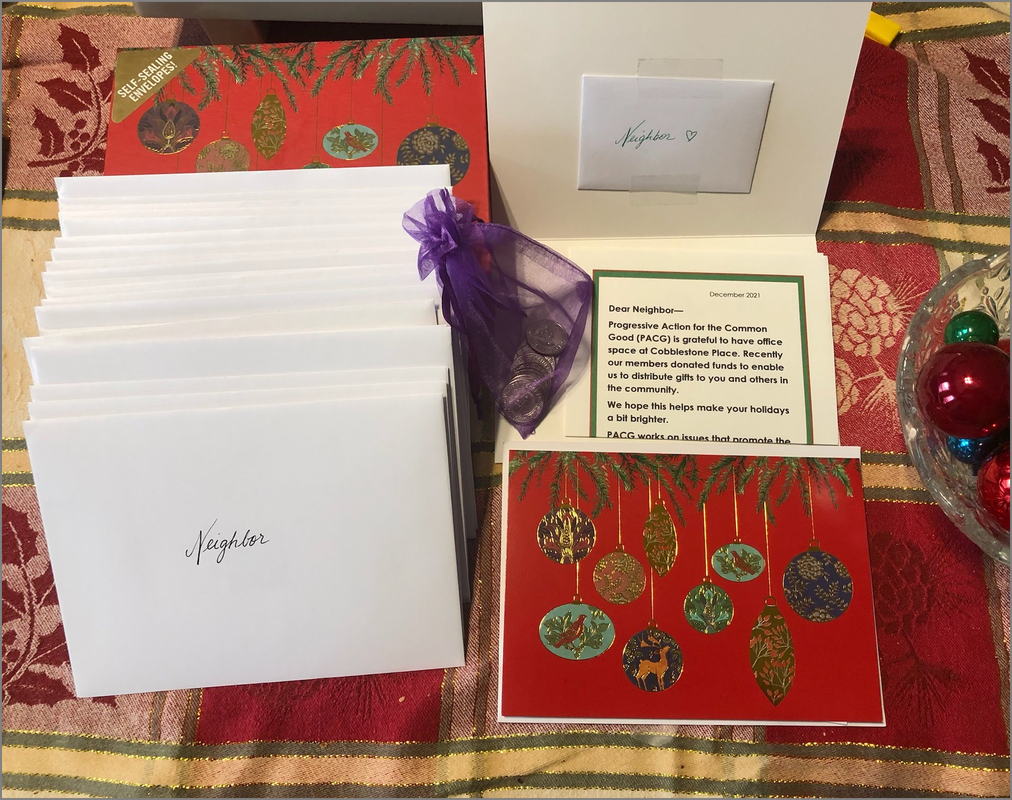
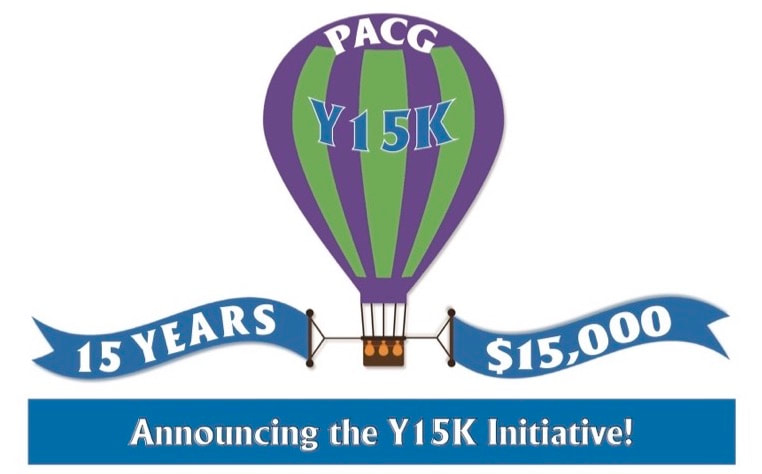
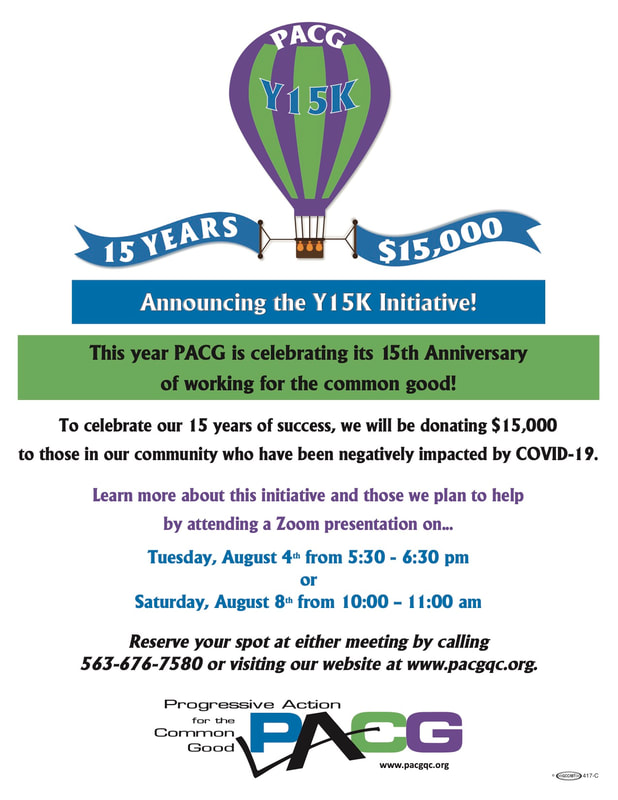
 RSS Feed
RSS Feed


